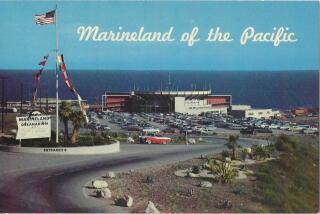Why kill PETA’s killer whale ad?
San Diego International Airport sells space on its walls for advertisements of all sorts. But in a misguided decision based on a vague policy, it has rejected an ad from People for the Ethical Treatment of Animals warning visitors to stay away from Sea World.
The PETA ad was relatively low key; it featured the smiling visage of actress Kathy Najimy and the words, “If you love animals as much as I do, avoid Sea World.” The group objects to the fact that Sea World, a marine park, keeps killer whales in captivity and forces them to perform. It also opposes Sea World’s captive breeding program.
Now PETA is suing the airport, with the help of the American Civil Liberties Union.
The airport says it has a policy of accepting only “noncontroversial” ads. But what makes an advertisement controversial? Sea World itself is controversial these days because of its killer whale shows. So an ad saying “Visit Sea World!” would be just as controversial as one saying “Shun Sea World!” — yet we doubt the airport would turn down the former. The airport cannot be the arbiter of everything that might be considered controversial; the policy in effect allows its managers to reject any advertising with which they disagree.
It would be one thing if the airport were a private entity. Businesses such as magazines (or this newspaper) may accept or reject practically any advertising. But the airport is run by a quasi-governmental authority; a higher standard applies when the government could be seen as trying to curb speech of one kind or another.
We happen to agree with PETA on the thrust of its message. Killer whales do not belong in captivity, and there is no truly humane way to keep them there. Captive breeding should end. And one way to achieve that goal is to inform the public about the issues.
But that is not why the airport is wrong. If it had a clear policy that, for example, only allowed advertising to promote local tourism, there might be more justification for rejecting ads that clearly were meant to harm local tourist attractions.
Government does retain some ability to regulate advertising or to create zones where certain kinds of ads are not allowed. Public agencies can, for example, restrict advertising for cigarettes or alcohol, when that falls within clearly defined rules about not using government facilities to promote products that harm public health. But with its fuzzy rule, the airport has put itself in the position of deciding what is controversial and what is not. That’s an inappropriate role for a quasi-governmental organization.
More to Read
A cure for the common opinion
Get thought-provoking perspectives with our weekly newsletter.
You may occasionally receive promotional content from the Los Angeles Times.










